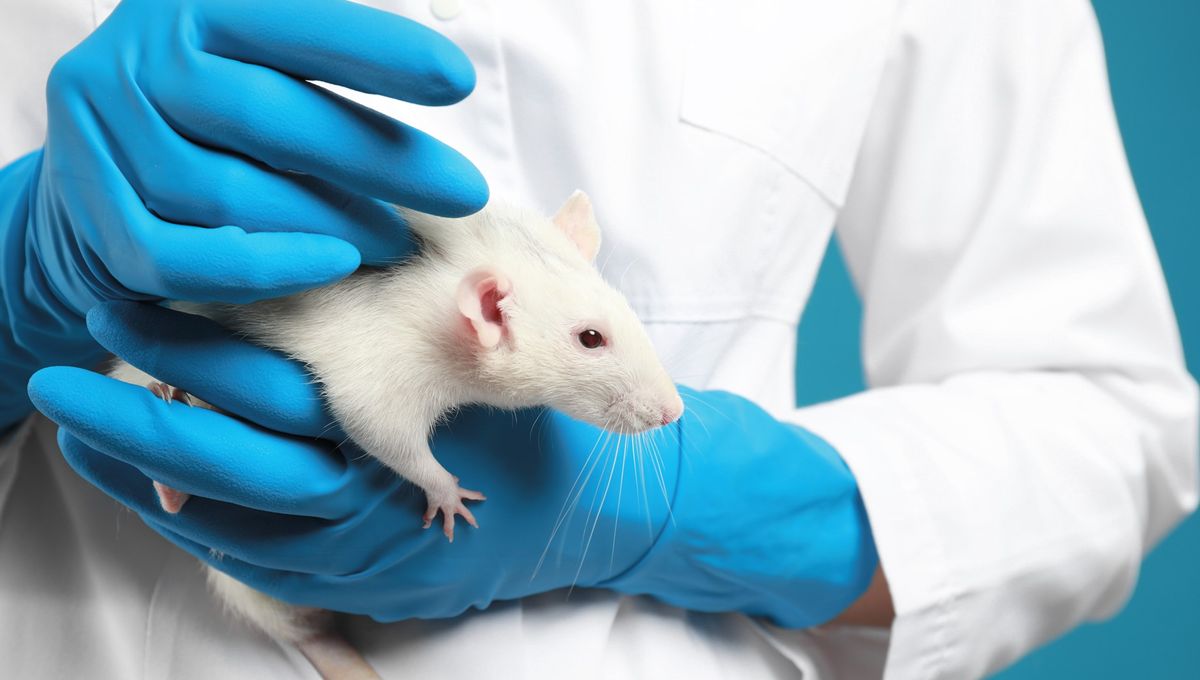
Rats, to some, are a menace – but to others, they are an adorable cutie-pie of a pet. Scientists have now identified that a part of the rat’s brain called the periaqueductal gray (PAG) is critical for laughter and playfulness, all through tickling them.
Playing is necessary for development and forming connections in both animals and in humans. Despite this, it is still one of the least understood behaviors, especially when concerning what neural pathways are needed to control playfulness in animals or humans.
“We know that vocalizations such as laughter are very important in play, which supported the idea that there is some sort of organization signal in the brain regulating this behavior,” said senior author of the paper Michael Brecht, a neuroscientist at the Humboldt-Universität zu Berlin, in a statement. “For example, children check for laughter when they play-fight with each other. If their playmate isn’t laughing anymore, they stop fighting.”
In this paper, they used rats as their study animals – in the past, rats have been known to giggle to indicate that they enjoy being tickled. For this study, they had to make sure that the rats were all settled, as it is known that rats are less likely to play if they are stressed, anxious, or restrained (aren’t we all?). So, the researchers allowed the rats a bit of freedom and allowed them to get stable in their new environment for a few days.
After the rats seemed to be comfortable, the human playmate tickled them under controlled circumstances. When we mean controlled, we mean they played a game called “chase the hand” and then tickled them on their bellies and backs. The scientists monitored the playtime for a high-pitched tone, that indicates them “laughing”, to make sure that the rats were having fun!
The researchers then investigated the animal’s brain activity to see what was going on. They found that there was a strong neural response to playing and tickling. This response was in the lateral column of the PAG. Inhibiting this part of the brain meant that the fun responses stopped and the rats would stop engaging and did not laugh as much. It was also shown that if the rats were in an unfamiliar, anxiety-provoking place then the laughing went bye-bye along with a decreased level of activity of the play and tickling responsive cells in the lateral column of the PAG.
But what is the PAG?
Well, the PAG is located in the midbrain. Past research has shown that it is involved in fight-or-flight responses as well as controlling vocalizations. Funnily enough, play-fighting can also conjure up these fight-or-flight responses – which may be what causes PAG to have such a big role in playtime. Play itself seems to be a very instinctual behavior, as it persists when the conscious control center (the cortex), fails to develop.
“A lot of people think that play is childish or not a very decisive behavior, but play is underrated,” says Brecht. “In my perception of play, it’s a self-training behavior. Usually, brains serve for controlling behaviors. Play behaviors, however, seem to serve for growing brains.”
What is next for this research? The scientists are planning on tickling other animals to see if they get the same responses in the PAG. This could help develop direct comparisons of playfulness in different species. They will also carry on playing with rats, but this time younger rats in a different manner to see if any variations change how the lateral column of the PAG develops.
Tickling animals for science, sign me up!
This paper is published in the journal Neuron.
Source Link: Researchers Tickle Rats For Science (Honest) To Identify Play Centre Of Brain